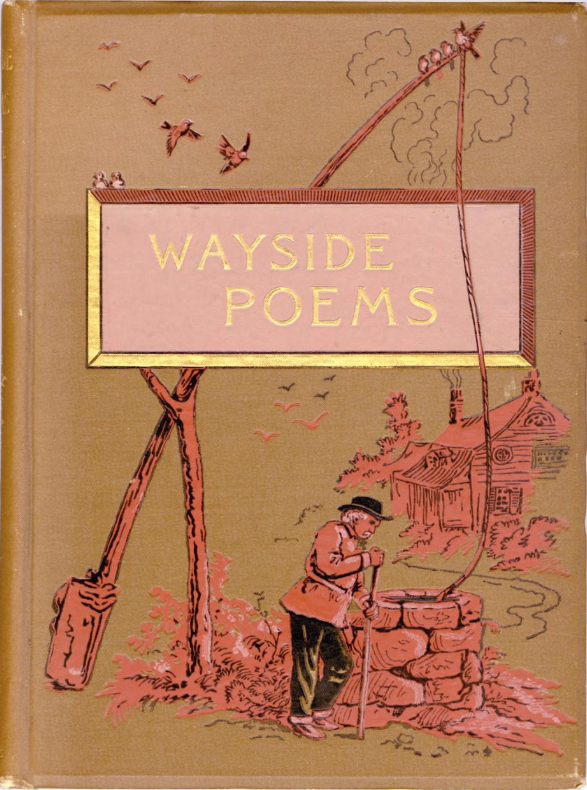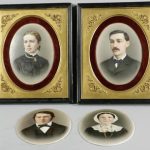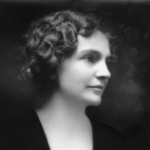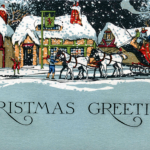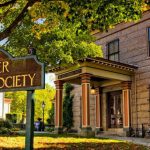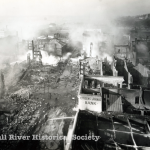When she died in 1927, Lizzie Borden – an avid reader – left an extensive library of volumes in myriad genres … she read it all, from classics and poetry, to history, science fiction, inspirational texts, and travel guides. In short, her literary tastes varied.
A life-long reader, she spent the last thirty-seven years of her life imbued in notoriety, the vast majority of her days incessantly haunted by the specter of suspicion; there was respite from time-to-time, but those more halcyon days appear to have been far fewer. With sufficient wealth at her disposal – enough to afford a very comfortable lifestyle – and domestic help to alleviate the drudgeries of household management, she had ample time for pleasures of reading.
She reveled in it.
Understandably so.
For most individuals, the delightful escapism furnished by books is a temporary indulgence – a sought-after luxury for those with hectic lifestyles, or a pastime for those more sedentary. But for Lizzie it was, I think, an integral part of her day-to-day existence, something vital to her sanity.
Is it any wonder that she sought to escape?
Immersing herself in another world, embarking on some voyage of discovery, or finding comfort in inspirational texts, her imagination could soar, allowing her to extricate herself – albeit temporarily – from the realities of life as she knew it.
Solace in books.
Among her favorite booksellers was Brentano’s in Boston or New York City – evidenced by labels in existing volumes – and, closer to home, Adams Book Store, a well-established institution in Fall River. In fact, she was known to deposit funds at the latter, to be distributed by the proprietor of the store in the form of books, to those who could not afford to purchase them.
Beneficence through books.
Following Lizzie’s death, her appointed executors – Mrs. Louis McHenry Howe, née Grace Hartley (1874-1955), and Miss Helen Leighton (1867-1950) – undertook the settlement of her estate as dictated by the terms of her will and, in turn, distributed personal effects and the so-called “rest and residue” to various individuals.
It is my belief that they were guided in this task by a memorandum left by Lizzie to her executors, detailing her wishes for the distribution of various of her possessions not bequeathed specifically by will. I have never seen such a document, and as such cannot say unequivocally that it existed – but I suspect it did.
Why?
Lizzie was an exacting individual, very much set in her ways and, perhaps, thorough to the extreme – guarded, she left little to chance. Years of notoriety left her justifiably cautious: Aware that her death would be newsworthy and thus open old wounds, for her, long unhealed and festering, she would have protected herself after death and, to her best of her ability, extended the same courtesy to her executors.
There was no public auction of her possessions; her privacy was ensured. Souvenir hunters would have to wait decades for the opportunity to purchase items that were once hers.
Coupled with Lizzie’s status as a Yankee “old maid” – I have known several over the years – it seems to me a logical practicality that she would have left a memorandum. I have seen several such documents left by well-heeled spinsters – contemporary to Lizzie as well as those left by ladies I knew personally – and have no reason to believe that Lizzie would have acted otherwise.
If anyone reading this ever spent considerable time with “spinsters of good family” and came to know them well – to understand how they thought – you know exactly of what I speak.
Just a hunch, though who am I to say?
Anyway, back in 1927, the two lady executors undertaking the daunting task of clearing out Lizzie’s Maplecroft were left with heaps of books: Some were retained personally by said executors; close friends were allowed to make selections; and the remainder were simply given away. In one instance, a gentleman visiting Maplecroft on estate business was allowed to take away any of his choosing, not selected by others – the extensive collection is still retained by his descendants.
Over the years, some volumes descended in the very families that obtained them originally, oftentimes treasured as mementos of a woman they called friend or knew as their kindly “Auntie Borden,” and others – likely the vast majority – were dispersed and scattered.
Books from Lizzie’s library occasionally appear in the market and are easily identifiable: Lizzie, like many of her contemporaries, habitually signed or initialed the volume and, occasionally, affixed a Maplecroft seal – in green (most common), or gold (far rarer) – to the volume, thus identifying the book as hers. The seals, though often thought of by many collectors as intended solely for the purpose of identifying her books, were, in actuality, more commonly used by Lizzie to seal letters, notes, and cards, evidenced by a large collection of correspondence in the possession of the FRHS, and by those retained in private collections.
The FRHS houses the largest and most important collection extant of artifacts pertaining to the Borden case and the life of Lizzie A. Borden and is considered, world-wide, as the central repository for such material; included in the collection are several books from Lizzie’s library.
Fast-forward: October 31, 2018.
The University Companies auction house, Westport, Connecticut.
Lot #22: “Book Signed: ‘L. A. Borden’ on the blank page following the front free-endpaper. Her copy of Wayside Poems by Wallace Bruce [American: 1844-1914], 165 pages, 6.75” x 9”. New York: Harper & Brothers, 1895. Copiously illustrated. Brown cloth beveled covers, blind-stamped hardcover with vignette in red, black, and gilt; brown endpapers. Minor fraying at head and tail of spine. Corners lightly bumped, Fine condition. Estimate: $2,000-$2400.”
I was alerted about the volume by a representative of the auction house, who thought – rightly so – that the FRHS might be interested in the book for the Borden collection.
The answer: Affirmative.
The dilemma: Insufficient funds in the museum’s very meagre acquisitions budget.
The solution: A very generous FRHS benefactor with a keen interest in the Borden case who immediately offered to acquire the volume for the museum collection.
The Auction: On Wednesday, October 31, 2018, a representative of the very generous FRHS donor bid incrementally on Lot #22 via telephone.
“Will you go $2,000?”
“Yes.”
“$2,000. Your bid.”
“Any advance?”
“Selling at $2,000.”
The gavel hit the block.
“Sold.”
Lizzie Borden’s edition of Wayside Poems is once again back in Fall River, and joins other of her books in the collection of the FRHS.
I am extremely grateful to my dear friend and FRHS benefactor who made this acquisition possible, and to another dear friend of many years’ standing who acted in the donor’s stead – thank you, both!
There was another book in the lot: Anne Pedersdotter, a drama in four-acts by the Norwegian playwright and novelist Hans Wiers-Jenssen (1866-1925), published in 1917. It belonged to Lizzie’s one-time friend, the American actress Nance O’Neill (1874-1965), and bears her signature.
An interesting association piece.
Perhaps I will write about that another time.
Both books will be on display in a Recent Acquisitions exhibit starting Saturday, November 17, 2018.


